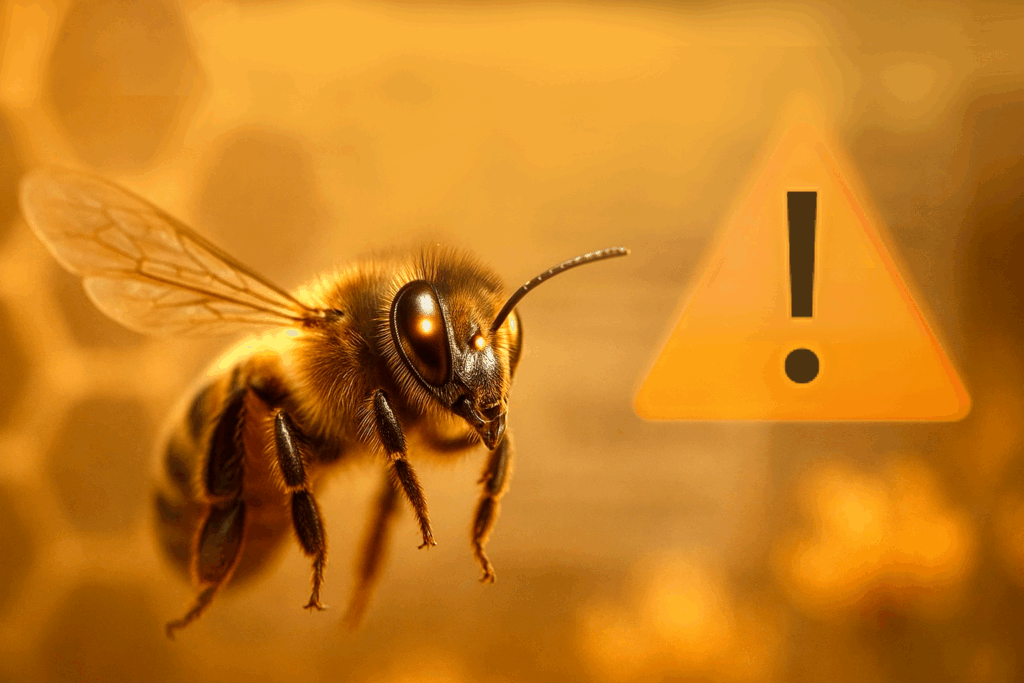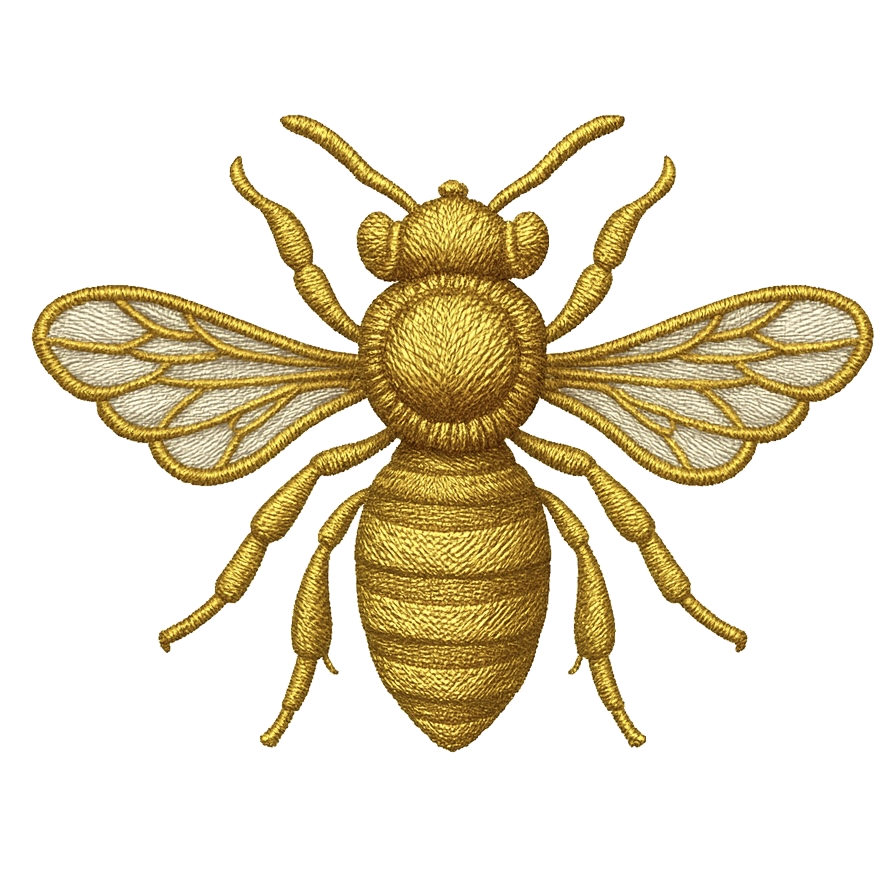
 BEE AWARE
BEE AWARE

Healthy pollinators must remain alert to threats in their environment, we too must stay vigilant as a community against those who misuse the language of conservation for personal gain. Sadly, not every group that claims to “save the bees” upholds the transparency, ethics, or accountability required of a true nonprofit.
By taking a few moments to learn about how nonprofits work we can better recognize how some people abuse our trust. We can learn to insist on integrity in charitable work. We can safeguard our donations and better honor the bees by ensuring that genuine resources flow to the habitats, research, and communities that serve them best.
At The Resonant Hive Sanctuary, our mission is to protect and restore bee populations while fostering community education and ecological stewardship. You won’t find any small print, DBA’s, or hidden agendas here. If you have any questions or concerns, please contact us. We appreciate you respecting our time as much we respect yours. The less time we spend answering general questions the more efficiently we can serve the bees.
*insert social media, Q&A, and contact form here 😉 thanks for your patience as we build the site…
Nonprofits are granted tax-exempt status because they exist to serve the public good—not private interests. By law, organizations like ours must follow strict rules: no profits may be distributed to individuals, all resources must advance the charitable mission, and financial reports must be transparent and available for public review. These safeguards are designed to build trust and ensure that every donation directly supports the cause, not personal gain. When nonprofits honor these standards, they strengthen both their communities and the wider network of public trust that keeps charitable work thriving.
All nonprofits in the United States must be legally incorporated within a state before they can apply for federal tax-exempt status. Incorporation establishes the nonprofit as a distinct legal entity—separate from its founders—so that it can own property, enter contracts, and be held accountable under the law. This legal foundation provides credibility, ensures governance through bylaws and a board of directors, and creates a framework for transparency and public oversight. Incorporation is what transforms a good idea into a trusted public institution, protecting both the mission and the community it serves.
At The Resonant Hive Sanctuary, we are in the process of becoming an incorporated nonprofit, because we believe that legal structure matters. Incorporation is more than a technical step—it’s the foundation that ensures accountability, transparency, and service to the public good. We are proud of becoming incorporated and so we display it publicly. Even before our status is finalized, our independent ethics committee has been guiding every decision with a deep commitment to honesty, education, and full transparency. Our goal is to set the highest standard of trust from the very beginning, so that every supporter can feel confident their contributions will always be used with integrity.
When you give to a qualified 501(c)(3) nonprofit, your donation may be tax-deductible, but only if no goods or services are received in return. For example, if you donate $50 with nothing given back, you can claim the full amount. But if you receive something in exchange—like honey, a T-shirt, or event tickets—the fair market value of that item must be subtracted from the deductible portion. Nonprofits are required by the IRS to provide written acknowledgment for contributions of $250 or more, clearly stating whether any goods or services were provided. This rule protects donors, prevents abuse, and ensures that tax write-offs truly reflect charitable giving.
In addition to direct donations, The Resonant Hive Sanctuary will be participating in an Amazon affiliate partnership and offering aligned partnerships and products for sale. We want our supporters to know that 100% of the proceeds from these sales go directly to our mission—restoring pollinator habitats, advancing ecological education, and supporting community programs. While purchases are not tax-deductible like donations, they still play an important role by generating steady support for our work. Every book, tool, or bee-friendly product you buy through our links or on our site becomes another way to strengthen pollinator protection while keeping our operations transparent and aligned with our values.
Your time is one of the most precious gifts you can offer, and we deeply appreciate every moment you spend supporting our mission. At The Resonant Hive Sanctuary, our ethics demand that volunteering be a two-way street: while the bees and ecosystems benefit from your help, you should also gain experience, knowledge, and a sense of purpose in return. We limit unbalanced voluntary commitments because true stewardship thrives on mutual benefit, not exploitation. The IRS recognizes volunteer service as a charitable contribution of time that cannot be written off on a tax return—but out-of-pocket expenses made while volunteering (like mileage, supplies, or travel directly tied to service) may be deductible if properly documented. By honoring both your time and your potential expenses, we aim to make volunteering a rewarding and transparent part of building a healthier future for pollinators and people alike.
The IRS is very strict about not disguising paid work as “volunteering.” If someone is doing the job of an employee, they must be treated — and paid — as one, even if the arrangement is short-term.
At The Resonant Hive Sanctuary, we respect the difference between volunteering and employment. The IRS requires that anyone who is paid for their labor — even temporarily — must be treated as an employee with proper wages and tax reporting. This rule prevents abuse, protects workers, and ensures fairness under the law. While volunteers freely give their time and may deduct certain expenses, employees must always be compensated transparently. By following these standards, we safeguard both our mission and the people who help us carry it forward.
A strong nonprofit is guided by a board of directors that makes decisions in the public’s best interest. The IRS requires certain key decisions—such as setting salaries, approving contracts, or handling potential conflicts of interest—to be made by disinterested board members. This means board members who have no personal or financial stake in the outcome. For example, a director cannot vote on their own salary, nor can they approve a contract that benefits their business or family. Disinterested members protect the nonprofit from favoritism and ensure every decision is based solely on what best serves the mission and the community.
Our ethics committee is composed entirely of disinterested board members who make decisions free from personal or financial influence. When determining compensation, we rely on independent data sources—such as Bureau of Labor Statistics reports, nonprofit salary surveys, and comparable Form 990 filings—to ensure our contributors are paid the most respectful amounts the IRS defines as reasonable and consistent with federal nonprofit law.
- U.S. Bureau of Labor Statistics – Publishes wage data by occupation and region.
🔗 bls.gov/oes - Guidestar / Candid – Access to IRS Form 990 filings, where nonprofit salaries are disclosed.
🔗 candid.org - Charity Navigator – Provides salary benchmarks and nonprofit efficiency ratings.
🔗 charitynavigator.org - Industry-specific surveys – For example, the Nonprofit Times Salary Survey or Chronicle of Philanthropy Compensation Reports.
Now that you have a general understanding of how legitimate nonprofits operate—how they are incorporated, governed by disinterested board members, transparent about donations, and compliant with IRS rules—you are better equipped to spot the fakes.
Scammers often use emotional appeals, pretty advertising, vague promises, or the language of “saving” without offering proof of incorporation, financial reporting, or a clear mission. Sometimes the best way to help the bees is by asking a few simple questions:
- Is this group incorporated?
- Do they have a 501c3?
- Do they explain how donations are used?
- Do they provide public filings?
- Are their financials transparent?
- Have they spent more on a website design and other marketing than they have on the actual cause?
RESEARCH TOOLS
Before you get too far ahead of yourself or make too many assumptions – about an organization – it’s always a good idea to check your efforts. Let’s consider Save The Bees USA. It doesn’t have .inc in the name, the website is super nice, they post a ton on social media, and they don’t have a clear link to their financials. Is it a scam?! There is no clear evidence. When we check with the IRS they are in good standing. They have a 501c3 and their 990 says the revenue is under $50,000 – so they are not legally required to make their financials public on the website. Instead of making assumptions we simply continue our research
Our mission does not include investigating or exposing fraudulent companies. While we believe it is every citizen’s responsibility to remain alert to scams and misuse of charitable language, our role is different. We do our part by sharing tools and education that help the public make informed choices, but we have chosen to stay fully committed to our core mission—protecting pollinators, restoring habitats, and engaging communities through education and research. By focusing our energy where we can make the greatest impact, we honor both our responsibility to the public and our responsibility to the bees.
We sincerely hope that every genuine effort to benefit the pollinators of the world is successful. Whether through habitat restoration, education, research, or community action, these initiatives all contribute to a healthier planet and stronger ecosystems. While our work is rooted in our own mission and values, we celebrate the many organizations and individuals who share the vision of protecting bees and other pollinators. Together, these diverse efforts form a global movement that is far stronger than any single group could be on its own.
The only competition we take part in is the urgent race to rebuild pollinator populations before we reach the point of no return. Declines in bees and other pollinators threaten not just ecosystems, but global food security and human well-being. Every hive restored, every habitat planted, and every community educated moves us closer to winning this race. By focusing on collaboration instead of rivalry, we channel all of our energy into what truly matters—ensuring that pollinators survive and thrive for generations to come.
🔎 IRS Tax Exempt Organization Search
- Lets anyone search by organization name, EIN, or location.
- Shows whether a nonprofit is tax-exempt and in good standing.
- Also provides access to an organization’s Form 990 filings (annual reports nonprofits must file with the IRS).




Here are a few ways to research nonprofits. Public input is not available here, but a wealth of information and a closed system rating of how the company is operated is available.
Nonprofit rating systems




The best way to share your experiences may be the Google reviews option.




If you have solid evidence of a fraudulent nonprofit or wish to check current known scams here are a few government resources.


